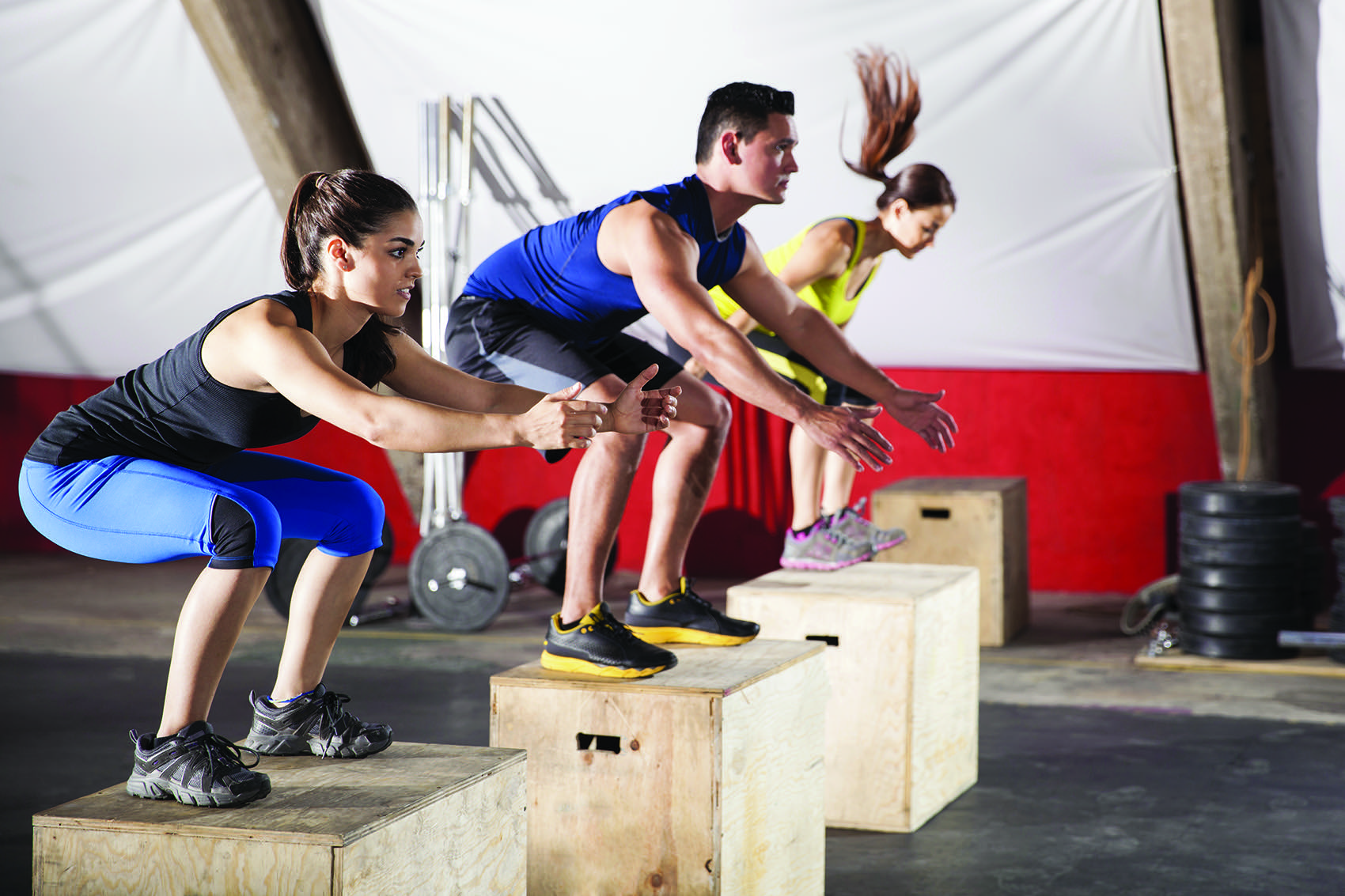Here’s what you need to know about plyometrics.
Not intended for beginners, plyometric exercises are designed for seasoned athletes or intermediate fitness folks who want to improve their performance.
Play tennis and want to pivot from side to side faster? Play football and want higher, faster explosive movements? Or want to improve overall explosiveness in your strength training? Then you can benefit from plyometric activities.
Called ‘plyo’ for short, plyometrics are also known as ‘jump training’ because of the many hops, skips, and jumps that make up a workout. Wonder what a plyo workout entails and how it works? Keep reading.
The Plyo theory – studies show plyometric training improves an athlete’s performance, explosive power, balance and body control.
So how does jumping achieve these goals? Isn’t just practice, practice and more practice of your skill all you need?
When you land on the ground from a jump, your muscles stretch. Plyometric exercises teach you how to stretch your muscles before you contract them when you land from a jump. Repeatedly stretching and contracting your muscles is a sure-fire way to get them in shape fast. It sounds strange, but the skills you learn doing plyometrics require muscle groups to coordinate so your whole body is involved in moving more quickly and aggressively.
Fitness gains – a plyometric workout is high-intensity and high-impact.
Unlike your usual strength-training routine, plyometric exercises are quick and require explosive movements. While you’ll get a whole-body workout, most of the movements target your legs and glutes. Your core, arms and back muscles are used, just not pushed to their limits like your lower-body muscles.
You’ll no doubt gain flexibility and strength by the continual contraction and stretching of muscles. And while plyometrics isn’t considered cardio exercise, it definitely works your heart.
With a name like ‘jump training’ you can guess what’s involved in a plyo workout – jumping, and lots of it.
You may do jump squats, one-leg hops, jump over hurdles or cones, or jump up onto a step.
Other examples of jumps include depth jumps, rebounding jumps, vertical jumps, ski jumps, tuck jumps and split jumps. You get the point. The speed and height of certain jumps can be measured and recorded to track progress.
A few of the more popular plyo exercises include the front box jump, lateral jump and broad jump. The front box jump is useful for increasing your vertical jump height by strengthening your glutes and quads.
The lateral box jump is effective at improving your lateral, side-to-side jump distance and speed.
Broad jumps will get your legs strong in no time. Want quick feet, strong ankles and powerful calf muscles? Try weighted lateral jumps.
Remember, plyometrics isn’t for beginners or pregnant women or those with painful joints, weak bones, or nerve conditions.
Anyone with health conditions should get a doctor’s approval before starting a new exercise program.
When getting started, find an experienced trainer (if you already have a trainer, ask them about plyo training in advance) who can teach you the fundamentals of plyometrics, and then start slow.
Because of the intensity of a plyometric workout, it’s not meant to be done every day.
Your muscles need time to recover after a strenuous workout, so give yourself at least one day off between sessions.
Professional athletes often focus on plyos during the off-season months of practice, but will incorporate plyometric exercises during in-season training workouts as well.
It’s a different and fun way to gain muscle, strength and agility.
Jack Wheeler is a personal trainer and owner of 360 Fitness in Red Deer.



